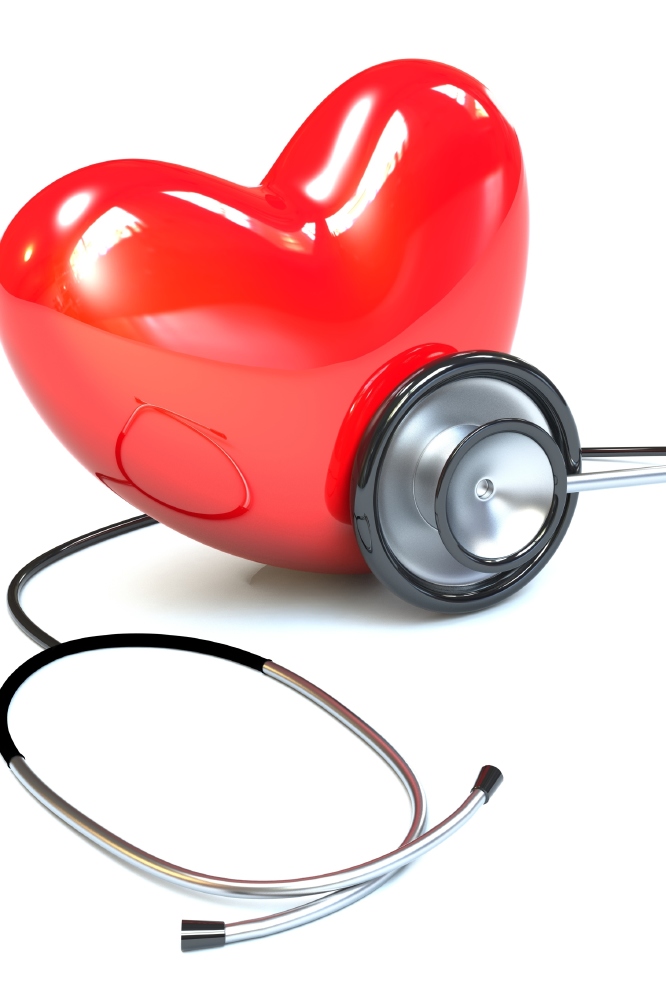
Do you protect your heart health?
February is National Heart Month: the British Heart Foundation’s annual campaign to raise awareness of all heart and circulatory diseases, including heart disease, stroke, heart failure, cardiomyopathy and atrial fibrillation.
Accounting for more than 161,000 deaths each year, heart disease results in more than a quarter of all deaths in the UK. Coronary Heart Disease is the UK’s strongest killer - resulting from a build-up of fatty deposits on the walls of the coronary arteries, it is responsible for the deaths of one in six men and one in ten women.
Key symptoms of an unhealthy heart include chest pain, an uncomfortable sensation of pressure, squeezing or burning in the chest, shortness of breath, swollen ankles, dizzy spells, and blackouts. Dr Gerald Carr-White, Consultant Cardiologist at London Bridge Hospital comments: “Any manifestations that suggest a change in the electrics of your heart should be queried with a specialist straight away – regular cardiovascular screening is key to preventing cardiovascular disease.”
Managing the risk factors of heart disease is vital to prevention; the risk of developing heart disease is significantly increased if you smoke, are overweight, have high blood pressure, have high cholesterol, do not regularly exercise or have an unhealthy diet.
Dr Balvinder Wasan, Consultant Cardiologist at London Bridge Hospital comments: “There is a well-established link between cholesterol level & the risk of developing heart disease - the higher your cholesterol, the greater your overall risk. Cholesterol promotes a build-up in the wall of the arteries and if this leads to a blockage in your heart muscle, it will cause a heart attack.”
Ms Robyn Coetzee, Specialist Dietician at London Bridge Hospital, explains the importance of a balanced diet: “A healthy diet helps reduce your risk of heart disease by helping you to maintain a healthy weight as well as keeping your cholesterol, other blood fats and blood pressure within optimal levels.
“Foods rich in fibre have been shown to help lower blood cholesterol levels. They are low in fat and are filling, so eating these foods also help to control your weight. High fibre foods include fruit and vegetables, wholegrain cereals and breads, wholemeal flour, brown pasta, brown rice, breakfast cereals based on wheat and bran, oats and pulses like, beans, peas, and lentils. Aim for at least five servings of fruit and vegetables per day and try to incorporate other high fibre foods such as breads, cereals and legumes into your diet on a daily basis.”
Ms Coetzee also recommends eating breakfast in the morning to maintain a healthy heart, “Eat regular meals including breakfast. This helps with appetite regulation and reduces temptation to snack on less healthy foods throughout the day.”
Also of significance in the rising rates of cardiovascular disease is stress; Dr Tom Stevens, Consultant Psychiatrist at London Bridge Hospital comments on what he considers to be the leading causes of stress in the UK:
“I believe most 'mental' stress today in urban societies is a result of the rise in complex human communication we encounter and the associated demands on our brains as opposed to the rest of our body. Stress can be difficult to measure, but in my opinion, technology, including mobile phones, emails and social media, is one of the key leading causes. This can impact on your ability not only to concentrate, but can also lead to fatigue, sleep disturbance and mood swings.”
“The key to managing stress is realistic balance in all aspects of your life - particularly the balance between work, life and family. Your thoughts and emotions set the stage for how stressed you will feel, so don’t fall into the trap of ruminating about the future or forgetting to enjoy the present.”
Dr Stevens continues: “In order to de-stress, it’s important to take control of your time – spend time doing the things you enjoy, with the people you care about. Make sure you take time to relax, this is not watching thrillers or drinking with friends, but something which allows the mind to rest, like yoga or a hot bath.”
Tagged in Health Healthy Heart Heart Health

